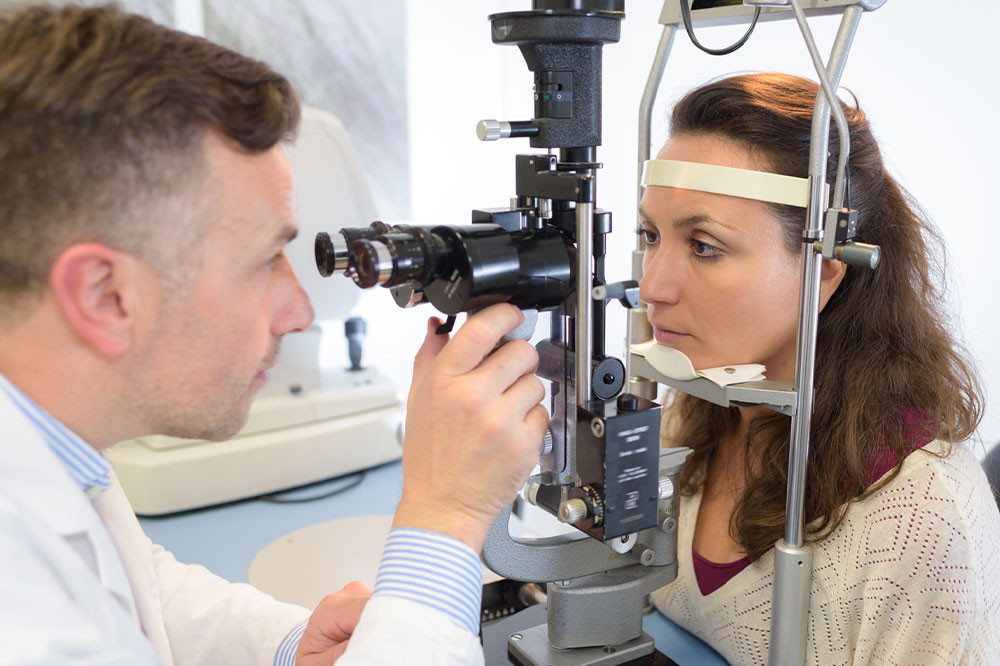
7 tips for finding the best ophthalmologist
Ophthalmologists are trained to diagnose and treat injuries, diseases, infections, and eye disorders. They specialize in corneal and external eye diseases, refractive and cataract surgery, glaucoma, ophthalmic oncology, ophthalmic pathology, uveitis, and ocular immunologic disease. So, these doctors can provide complete eye care and help maintain or improve eye health. Finding the ideal doctor may require careful consideration. So, here are a few handy tips to find the best ophthalmologist:
1. Determine the preferred specialization
When it comes to eye-related conditions, one can turn to two types of specialists: optometrists and ophthalmologists. They are both trained to carry out a comprehensive eye examination, write a prescription for contacts or glasses, and prescribe treatments for certain conditions. However, it is important to know the difference between the two. Optometrists focus on vision and eye health, whereas ophthalmologists specialize in eye surgery (such as cataracts or glaucoma). Depending on the severity of symptoms, decide between an optometrist and an ophthalmologist.
2. Seek referrals
The easiest way to find an ophthalmologist is by asking for referrals. One can speak to a primary care physician for a list of the best eye specialists in the area. Friends, family, and loved ones are another great source of recommendations when looking for an ophthalmologist. One can also take their search online and look through directories maintained by the American Optometric Association, the American Academy of Ophthalmology, or the American Society of Retina Specialists. Those with health insurance may also check their insurance company’s list of in-network doctors for contacts.
3. Check credentials and experience
With a list of referrals in hand, it is now time to shortlist. One can begin by checking the doctor’s credentials, i.e., their education and board certification. Looking for subspecialty fellowship training can also help ensure great vision care. At this stage, one must also look into the doctor’s occupational history to ensure that they do not have any malpractice claims or disciplinary actions against them.
Next, one should inquire about the doctor’s experience. Here, one can ask the doctor how many patients they have treated with a similar diagnosis. Those with more experience in a certain area are more likely to offer better treatment. Talk to the ophthalmologist about the treatment procedures they have performed, the success rate, complications, and other relevant details.
4. Evaluate their communication style
One of the most important things to consider when choosing any doctor is comfort. This is largely dependent on their style of communication and their ability to make their patient feel respected and involved in the treatment process. To evaluate this, one can check whether the doctor answers all the questions in simple, easy-to-understand terms and makes one feel engaged. Such assessment can help one establish if they can work with the doctor as a team throughout the treatment process. Some important questions to ask an ophthalmologist at a preliminary eye exam include:
– Which tests will be performed?
– What do the reports mean?
– Are follow-up appointments necessary?
– Which lifestyle changes can help in preventing eye diseases?
– How soon can one see the results of treatment?
– Is the disease in question expected to improve or worsen with time?
– Should one keep an eye out for specific signs or symptoms?
5. Look up patient reviews
Owing to the wonderful capabilities of the internet, today, patients have the opportunity to share their experiences and grievances regarding their treatment. Their reviews often contain important information regarding scheduling appointments, wait times, the office environment, staff friendliness, and other details. Looking up these reviews can help one understand what to expect and if the staff and clinic are worth considering.
6. Check insurance coverage
Insurance is a key aspect to consider when finalizing an ophthalmologist. While vision products and services such as prescription glasses, routine eye checkups, and contact lenses are not covered under most insurance plans, many other services (such as cataract removal) are covered. One should check all insurance documents carefully or get in touch with the insurance company when choosing an in-network provider. This can help reduce any out-of-pocket costs.
7. Enquire about telehealth services
Today, many minor infections and issues can be managed using telehealth services. When looking for a new eye doctor, one can ask them if they offer telehealth services, i.e., consultations via email, text, audio, or video calls. These services can help significantly reduce the time and energy spent on follow-ups and minor complaints requiring a visit to the ophthalmologist.
To choose the best eye specialist, one must also assess their place of practice. One can check if the hospital or clinic is associated with complaints of eye infections post-surgery and if the facility has the necessary equipment to conduct surgical procedures. Looking into the facilities’ hygiene practices is a crucial part of ensuring a safe treatment experience.




